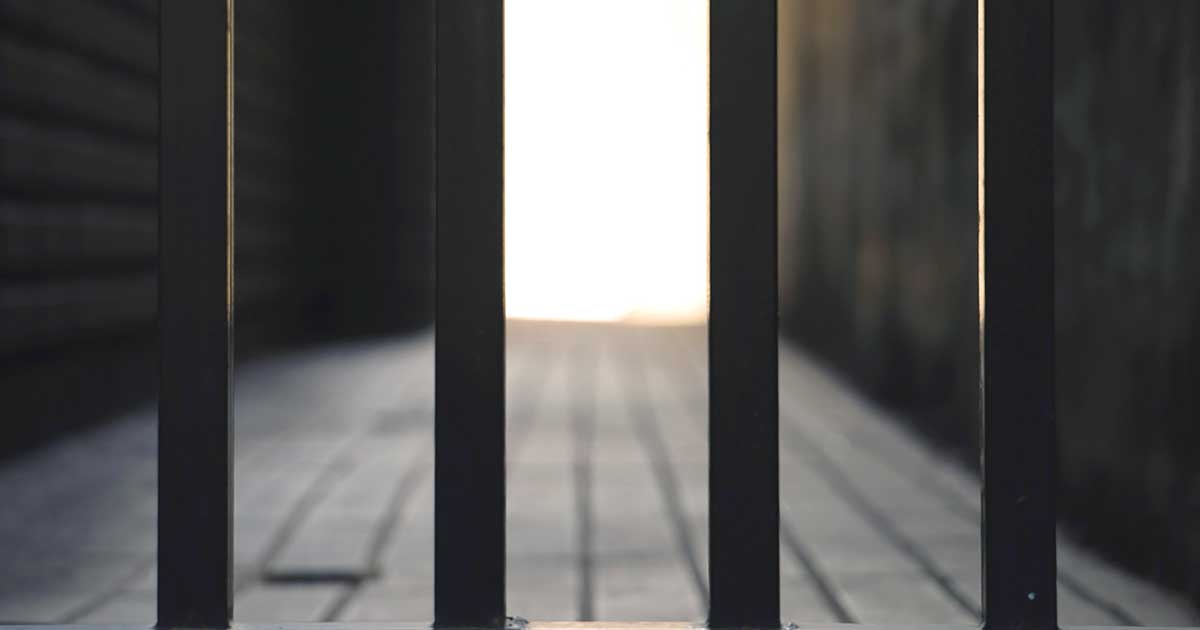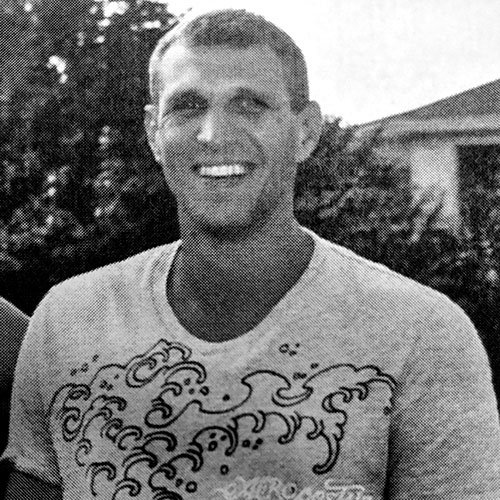FROM THE INSIDE
★ ★ ★ ★
METAMORPHOSIS

Image by De An Sun

Ryan M. Moser is a recovering addict serving a ten-year sentence in the Florida Department of Corrections for a nonviolent property crime. Previous publications include Evening Street Press, Storyteller, Santa Fe Literary Review, The Progressive, themarshallproject.org, medium.com, thewildword.com, thestartup.com, and more. In 2020, his essay “Injuries Incompatible with Life” received an Honorable Mention award from PEN America, including publication on pen.org. Ryan is a Philadelphia native who enjoys yoga, playing chess, and performing live music. He is a proud father of two beautiful sons.
This column was made possible with the help of Exchange for Change, a non-profit based in Florida that teaches writing in prisons and runs letter exchanges between incarcerated students and writers studying on the outside.
Exchange for Change believes in the value of every voice, and gives their students an opportunity to express themselves without the fear of being stigmatized. Their work is based on the belief that when everyone has the ability to listen and be heard, strong and safe communities are formed, and that with a pen and paper, students can become agents of change across different communities in ways they may otherwise have never encountered.
By Ryan M. Moser
Measuring change is difficult, like trying to grasp an ethereal wisp of smoke or follow a rainbow down to its end. But you know it when you see it in someone else, and you feel it when it happens to you. I’ve changed so much during my eight years inside prison that I often don’t recognize who I am, or remember who I used to be. But that’s fine with me.
It’s virtually impossible to leave prison the same person you came in as: you either study criminology and become a better convict, doing the same things that got you inside in the first place, or you make amends for your mistakes and live a different kind of life. I chose the latter, but only after a lot of trial and error and much personal tragedy.
The first time I came to prison, I didn’t really care about personal development – I was a drug addict who got caught stealing and blamed everyone else for my problems. Only months into my three-year sentence, I was comfortable and doing the same thing I had been on the streets: working, getting high, playing sports, and being stagnant. I didn’t care about the consequences of my actions. Even though I’d been raised to be kind and have integrity, I wouldn’t admit to myself that I’d done anything wrong. I was young and delusional. I planned for my release and looked forward to seeing my family, but subconsciously knew that I would go right back to being a functional addict when I returned to society. A little wiser about the system, but not contrite.
And so I came back. Of course, I spent my one-year bid dealing drugs at the work camp where I was in custody, biding my time until I got out, knowing that nothing was different but not caring. I wasn’t evolving. In my own mind I was still a victim, a product of bad luck, a troubled childhood, a vicious pain pill addiction and a lack of direction. All I did was find ways to keep busy, make money off my hustle, and count down the days until my incarceration was over.
When you’re an addict and a repeat offender, your family, friends, co-workers and lovers have already heard all of the excuses, all of the platitudes about how you will change your life:
When I get out I’m gonna do the right thing from now on.
I promise that was the last time.
I’m never going back to prison. I’ve learned my lesson
I won’t relapse again, I got this under control.
But they’ve also undoubtedly witnessed you fail over and over, doing the same thing again and again without any new results – insanity as they say. When I was arrested for the third time, for the same crime of dealing in stolen property to support my addiction, I finally had a monumental realization. I’d had enough. Maybe it had to do with losing so much precious time, or letting my family and sons down, or just an overwhelming exhaustion from so many years of my Sisyphean task, pushing the rock up the hill and watching it roll back down. Or the violence I started to experience at real prisons instead of work camps… or the shame of losing so much and compromising my values for something as superficial as sex, drugs, and adrenalin… or the embarrassment of being a repeat offender… or the stigma and the way I felt about myself when free people learned I was a convict … or the numbness of being an addict… or….
Whatever the reason, I had an epiphany. I had a vision of my future if I continued down this path: the proverbial heartbreak of dying unhappy and alone.
One day I was snorting morphine pills and smoking cocaine, cheating on my fiancé and not paying my rent. The next, I was arrested and sitting in county jail awaiting court for another theft charge and knowing that I was going away for a long time. But the next, I was contemplating how I was going to change my life forever. I had dishonored my family again and taken advantage of someone’s kindness, and I needed a full metamorphosis of mind, body and soul. My mantra became “Right thoughts. Right Words. Right Actions’;’ I started to meditate again daily. Success was my only option. My phone conversations with home became deeper in tone and more sincere, and although I still had trouble confessing to my family the total error of my ways, I nonetheless started to focus on a true personal conversion. One of pure transformation back to my kind and gentle nature. A fresh beginning and a clean slate. A brand new day. A vermillion horizon.
I admitted that I was powerless, and started to rebuild.
The problem is that if you don’t go through a complete paradigm shift in your beliefs and way of thinking, then you’ll always end up falling back into old patterns of behavior. A true volte-face starts inside with your principles; with a benevolent spirit and a solid character; by showing empathy for others and having integrity even when no one is looking. So I reoriented my inner compass and evolved. I vowed to become different in some way without losing my former essence.
Everything changes in time. The Buddha called this impermanence; Newton called it fluctuation. It would be hard to deny the fact that people change in one way or another – for good or bad – over an extended period of time. Our experiences are too textured and imprinted on our surface not to leave some faint trace of transformation. Growth and decay are an inevitable part of life as we know it.
Eight years after my imprisonment, ready to go home, I hope that my family and friends can say that I’ve made a positive transmutation for once in my life. This transition to my best self started behind bars, in an unimaginable place of despair and dehumanization. Against heavy odds, I stayed sober and started in recovery–even though there were many times it would have been easier to use drugs to numb my pain and occasional depression, especially when my father died suddenly. I admitted my faults and became more self-aware, recognizing the abandonment issues that caused my insecurities. I discovered self worth and a healthy self-love. I looked into the mirror of my soul and faced some defects while embracing my strengths. I exercised regularly and practiced my Zen.
My loving, forgiving family and neglected sons became my priority, and I put their feelings first in everything I did. After watching my parents sacrifice for their kids for so many years, I was finally able to make unselfish decisions that would benefit my own progeny, and it felt great. I continued my education, started a new trade in water treatment, became a journalist and award-winning writer, created therapeutic art, tutored GED students, studied leadership books and spent thousands of hours working on my individual betterment through classes and programs and mindfulness.
Moreover, I did this while struggling with depression, regret, loud noise, violence, extortion, racism, classism, officer abuse, boredom, anxiety and separation from the civilized world. Everyone inside prison who has ever done something good to change their life has done it under the hazardous conditions and negativity of a broken system.
While there are no concrete metrics for determining a real transformation of character, I believe that those closest to me can see it. No data or analysis can come to an absolute determination of success, but I can feel it. There is an undeniable level up from where I used to be to where I am now: mature, drug-free, selfless, remorseful, and honest. And although the magnitude of my personal change can’t really be put into words, and no one will truly believe it until I get out of prison and prove it through my actions (which I can’t blame them for), I know it to be so. In fact, I’ve staked my life on it.
As I get ready to leave prison and re-enter society, to put the trauma behind me and begin a sanguine future, this feels like my spiritual masterpiece. I’ve morphed into a better man. I’ve sprouted up from a seed in the black mud into a beautiful lotus, spreading across the cool water. I am finally proud to be me. But I did not come to this place alone, nor could I have. So many people helped me, and I couldn’t have changed my life fully without them. It may have started with my first determined step, but the journey continued because of their support and grace.
Now I’ve found acceptance, and I understand my place in the universe; when I walk out that gate towards infinite freedom, at long last, I have inner peace. And no matter what direction I go in life, or how many different experiences I have left on Mother Earth, or what Karma holds for my existence, I know that I will never fly as close to the sun as I did in the past.
Singed, but alive to soar another day.
* * *
A message to my Wild Word family:
After a life-changing three-year journey together, I am humbly passing my “From the Inside” column off to a new and talented writer. This column would never have been possible without the opportunity presented by my favorite editor, Kusi Okamura; my selfless Exchange for Change mentor, Kathie Klarreich; and the sage poet, George Franklin. Many thanks for your continued patronage.
To any readers who happened upon my essays, I extend my gratitude for taking time out of your life to vicariously experience what I did in prison. This collection of essays will eventual/y be published into a book, and your encouragement has given me the confidence to do this. Thank you for supporting my friends at The Wild Word …Namaste.
























0 Comments